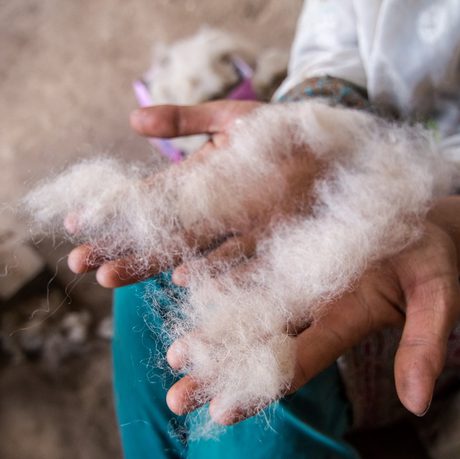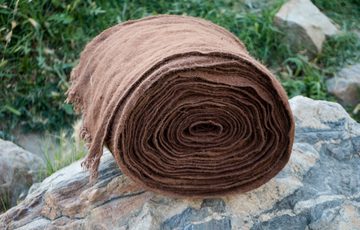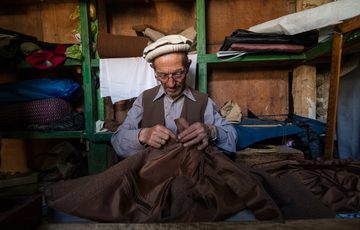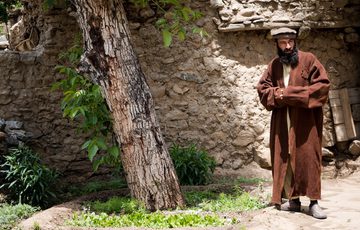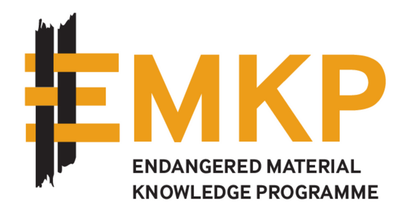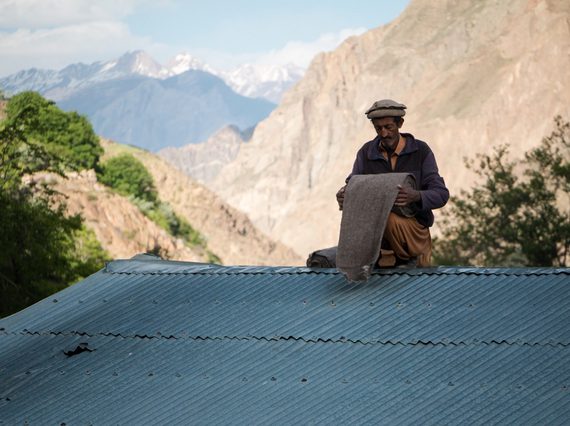
Chitrali Shu
The mountainous region of Chitral in northern Pakistan is home to a pure woollen fabric called 'shu' or 'patti'. This project will document this living tradition through film and interviews.
Last updated: 12 January 2023
About the project
We are hosting a 2-year project to document the endangered practice of making shu, a handwoven woollen fabric, characteristic of the Chitral region in northern Pakistan.
The mountainous region of Chitral in northern Pakistan connects Afghanistan, Tajikistan and Xinjiang in northwest China. It is home to a climate-adapted and windproof pure woollen fabric, called shu in the local Khowar language and patti in Urdu. The knowledge and skills of making shu is a renowned heritage of the people of Chitral who turn this famous hand-woven textile into warm clothing for themselves and trade it across borders. The knowledge, skills and social rituals related to the making of shu are endangered due to changes in the climate, an ageing population in the villages and the lack of interest in craft skills from younger generations. This project will document key technical and cultural aspects of this process as it is still carried out and lived by a few families in Chitral through film and interviews.
- Project title
Documenting endangered knowledge of making Chitrali shu (handwoven woollen cloth) in Chitral, northwest Pakistan
- Project active
2022 - 2024
- Research theme
Identities and Cultural Contacts, Sustainability
- Strategic priorities
Reaching out to people across Scotland and the world; Taking action on climate change and environmental impact.
Contributors
Adil Iqbal, project investigator, cultural practitioner, Scotland & Pakistan
Feroza Gulzar, videographer, Pakistan
Mansura Shams, collaborator, founder of women's cooperative Kho & Kalashi, Chitral, Pakistan
Friederike Voigt, project host, National Museums Scotland, Edinburgh
Watch “Kasb-e-Hunar (Skilled Enclave)”, a 2016 short film by Adil Iqbal
Image gallery
Read Adil Iqbal's blog from the 2022 field trip
The project is funded by the Endangered Material Knowledge Programme (EMKP), a grant programme established at the British Museum with support from Arcadia. Responding to momentous changes, this project, led by an independent Scottish-Pakistani researcher in collaboration with the Chitrali women’s cooperative Kho and Kalashi and a Pakistani woman videographer, will preserve the knowledge of making shu for the benefit of the local Chitrali community. The documentation will finally be made publicly accessible in the EMKP’s online archive.
Project contact
Friederike Voigt
Funded by
You might also be interested in
- Discover
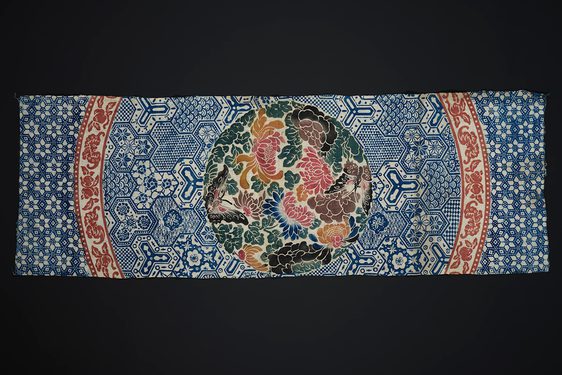
The material lives of ordinary people: rare 19th century Chinese cotton
Written by Dr Rachel SilbersteinWhen you think of historical Chinese dress, what material comes to mind? Most people would probably assume silk. But the majority of the population in Qing dynasty China (1644-1911) actually wore cotton.However, this reality is not… - Discover
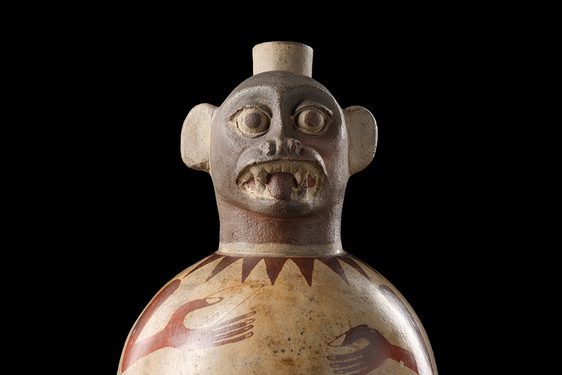
The cultural symbolism of monkeys and apes in 6 objects
Apes and monkeys are the closest relatives to humans. Our primate cousins have always held special significance for the cultures mostly directly in contact with them. This selection of objects from our collections exemplifies the powerful… - Discover
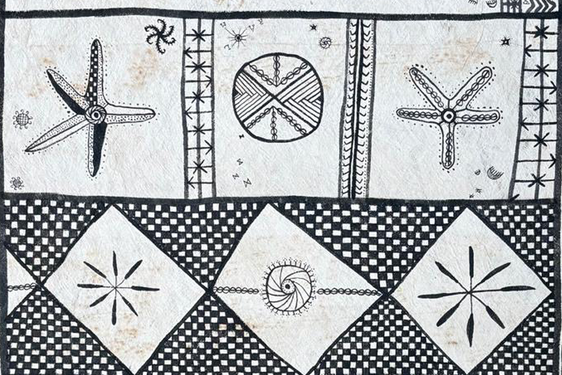
Ancestral Connections in Contemporary Niue Textiles
Written by Dr Ali ClarkThese two hiapo (barkcloth) artworks by artist Cora-Allan Twiss reference the natural landscape and textile traditions of Niue and Scotland.
